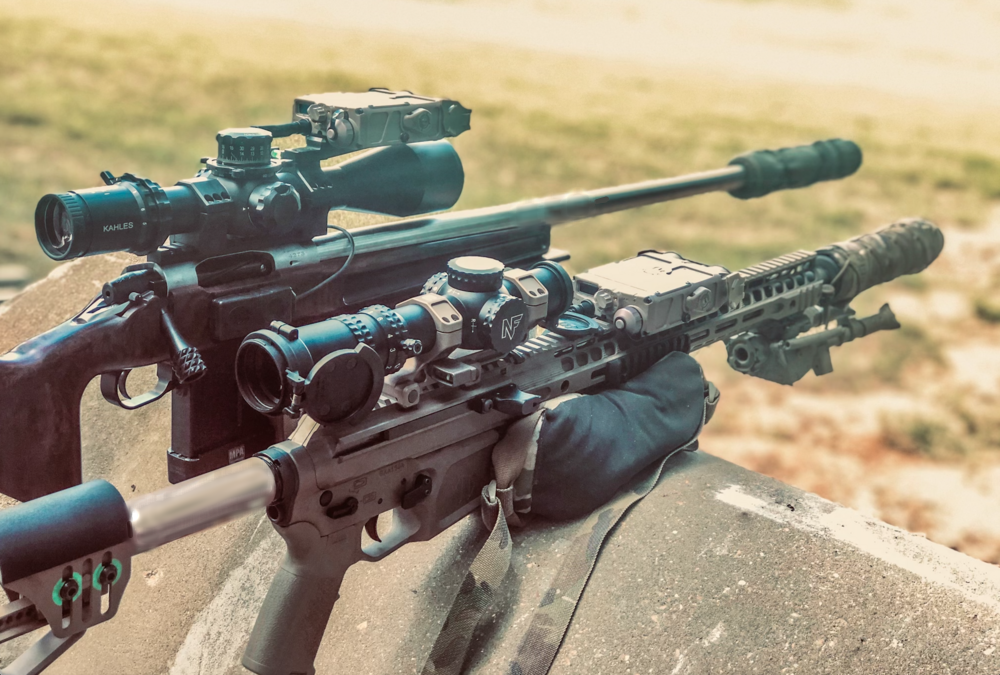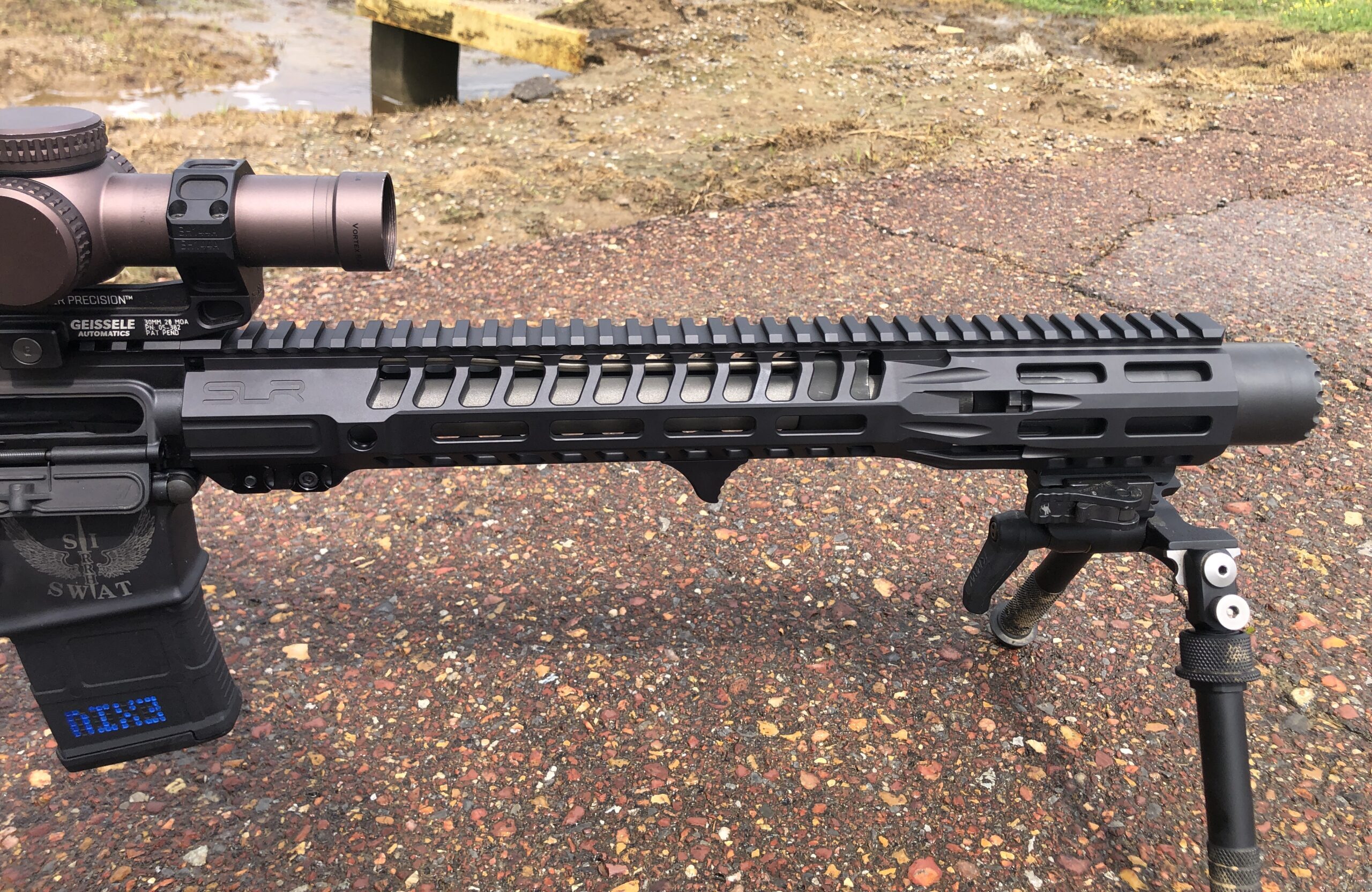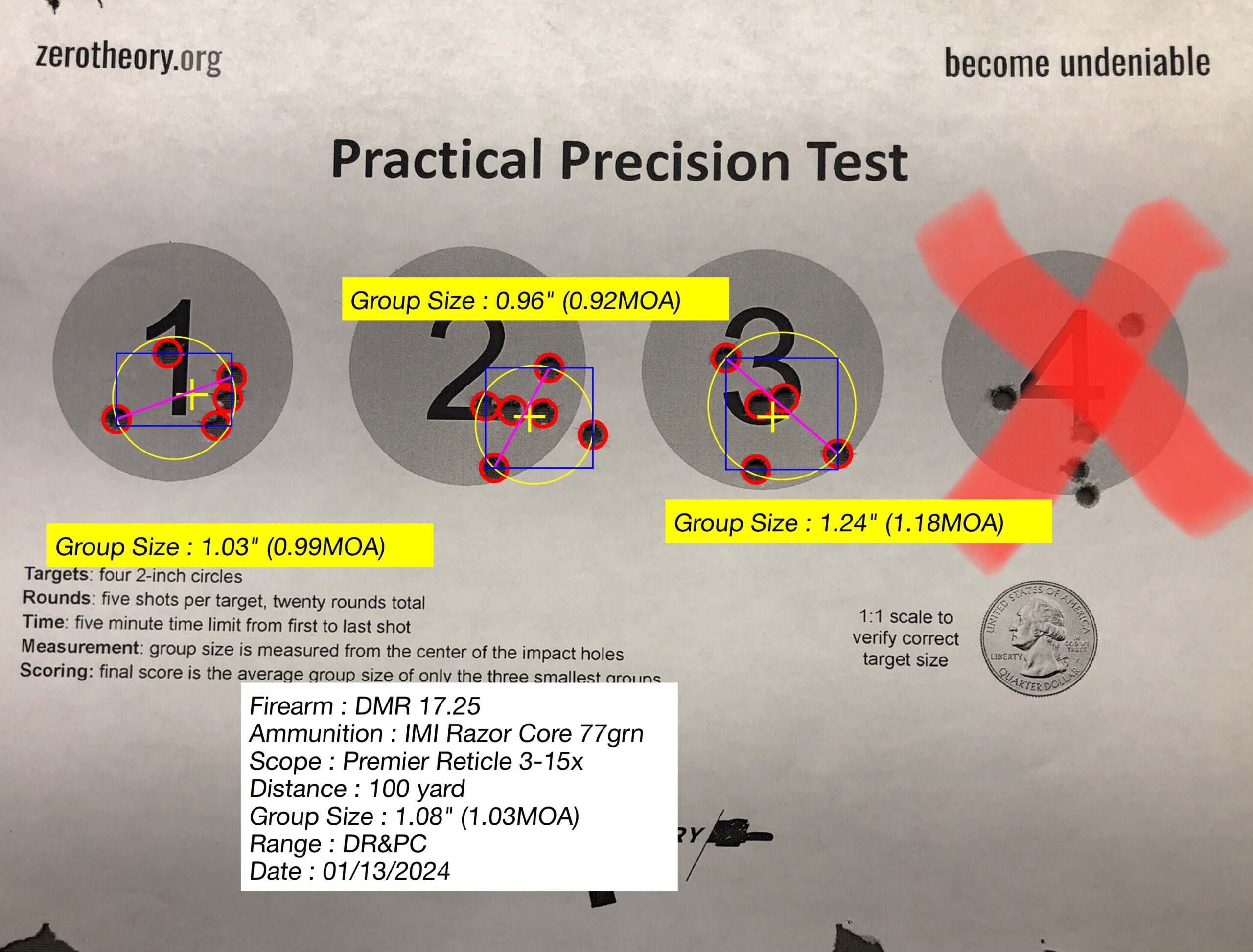Gas Gun vs Bolt Gun pt 2
by Zach Stamp
This is a follow up to Zach’s original article: Gas Gun vs Bolt Gun. If you haven’t read that one already, CLICK HERE to go back and read it first.
In my first article on this topic I discussed misconceptions about the inherent accuracy of a gas gun. I talked about how a gas gun is not inherently less accurate than a bolt gun but it does exaggerate any error you have in your fundamentals. In this article, I will discuss choosing between a gas gun or a bolt gun. When should you favor one over the other? A sort of “pros and cons” list, if you will.
Both weapon systems offer unique advantages and disadvantages which make them more suitable for certain scenarios. Whether it’s the frequency of engagements, the speed of target engagement, the precision required, or even the sound signature, each factor plays a crucial role in your decision-making process.
Let’s start with my favorite, the bolt gun! Bolt guns are a much more simple system than gas guns. This simplicity facilitates shooters’ precision when firing due to the lack of moving parts. In other words, the bolt gun is something of a “dead” system. This helps in several ways, such as making the gun easier to shoot when you have compromised fundamentals, maintaining good follow-through, and allowing easier spotting of shots downrange. Because of this dead system, I would choose a bolt gun if precision was the absolute most important criteria for success in a particular engagement, such as a hostage rescue shot or (more likely) a long shot in a sniper competition. Bolt guns, being a simpler system, are also much easier to tune. Anyone who has reloaded for gas guns knows what I am talking about. Optimizing a gas gun requires fine-tuning your gas and buffer system for dwell time. You have probably heard people talk about AR-15s being over-gassed or under-gassed; these are things you don’t have to worry about when shooting a bolt gun. This translates to a more reliable system. A lack of a gas system in a bolt gun also allows them to be suppressed more easily. They are also much quieter than a gas gun. 300 Blackout is an excellent example. A suppressed 300BLK with subsonic ammo in a bolt gun sounds like shooting a pellet gun. Bolt guns are also better for what I call practical speed. The need to run the bolt after every shot often forces shooters to take a split second extra to really make the shot count. You can’t just send a wall of bullets at a target and hope one hits. One thing I often catch myself doing when shooting a gas gun is outrunning my accuracy due to impatience. I tend to squeeze off rounds without letting my reticle settle on the target. The bolt gun makes this almost impossible.
For cons, the biggest is speed. This may seem contradictory when I just said bolt guns are great because of their practical speed. While this is true, it can also be their biggest weakness. I have heard people claim they can run a bolt gun just as fast as a gas gun. Let’s be real; that is impossible. Bolt guns require you to work the bolt after every shot. They will always have a slower rate of fire. In a tactical circumstance, let’s say covering a roadway where the situation is very dynamic, the slower rate of fire will hinder my ability to meet the mission. Bolt guns are not as capable at engaging multiple targets as quickly as possible. Bolt guns are also typically limited in ammunition capacity. With some exceptions (like the Ruger Precision Rifle which can take AR-10 magazines), most bolt guns are limited to 10 or 12-round magazines. You can try to mitigate this by adding magazine extenders, but ultimately you’re fighting a losing battle. Even with +4 extenders, and ignoring the added cost and increased complexity, you will still have drastically less ammo than a standard 25-round PMAG in an AR-10 chambered in the same caliber. Finally, while the lack of a gas system makes bolt guns extremely simple, the disadvantage is all the energy from the round going straight into your body. You absorb all the recoil with no buffer system to dampen it. It’s the same as firing a pump action shotgun versus a semi-automatic shotgun. A lot less energy is being transferred to you with a gas system. This is exaggerated even more in lightweight hunting rifles, especially those without muzzle brakes.
Now to the gas guns. Most of the pros revolve around the inherent speed of the system. Gas guns are a more straightforward system because once the gun is loaded, all you have to do is remove the safety and pull the trigger. The rifle will automatically load the next round from the magazine into the chamber and cock the hammer for you. Gas guns are also extremely versatile. With the same AR-15 lower I can use an 11.5” barrel upper with a red dot to clear a structure and then swap it to an 18” barrel upper with a high power scope once I get to my overwatch position. Even if all I have is an 18” barrel upper, I can use it as both a general-purpose fighting rifle and a precision rifle without changing a thing. This is why the MK12 Special Purpose Rifle was introduced to the United States Special Operation Forces to be used in combat (which is also the rifle I used for all of my deployments, no big deal). The versatility is significant. While there are highly versatile custom bolt guns on the market today, they are often costly and in most cases impractical. These qualities are why I feel gas guns are better suited for most tactical applications. The speed and versatility are just unmatched by bolt guns.
And now, onto the cons. Gas guns are much more complex as a complete system than bolt guns. Because of this, they require more maintenance to be reliable. To function correctly, gas guns require a more rigorous cleaning and lubing cycle. With the introduction of a suppressor, you must double down on your cleaning and lubing. If you are a lazy shooter like me, you may run into reliability issues with your gas gun. Suppressors will increase the amount of carbon being thrown into your bolt carrier group and throw a lot more gas into your system. This will increase your back pressure under recoil, making it harder to spot your impacts and make quick follow-up shots. This may also throw off your rifle’s tuning. Gas guns such as the AR-15 rely on the dwell time inside the barrel to cause a pressure spike correlating with the size of your gas port to cycle the action correctly; once you do something that changes the pressure, it will affect the entire system. This doesn’t mean adding a suppressor to your AR-15 will make it inoperable, but it may take it out of that “optimal tuning zone.” So, if you are like me and take the time to optimize your gas gun with the lightest recoil but maintaining reliability, a suppressor may throw off all your work. You will have to start your tuning process all over. Another con is that gas guns will exaggerate the errors in your fundamentals. Gas guns absolutely require good fundamentals to get the same accuracy as you can get in a bolt gun. And lastly, but most importantly, is reliability. Gas guns are going to be inherently less reliable than bolt guns. For example, during my time as an RO for several of the Mammoth Sniper Competitions, I saw many gas guns malfunction during the three days of shooting. Maybe half of the gas guns I saw experienced problems while shooting a stage on the clock. Typically, malfunctions I see in bolt guns are ammo-related, usually bad reloads. Gas guns have more moving parts and are simply more complex. A lot can go wrong. This is why most of your military carbines are over-gassed. The designers are attempting to mitigate the adverse environments and allow the gun to operate. TAKE CARE OF YOUR GUN IF YOU RELY ON IT!
I love both of these weapon systems. Both systems are highly capable in a wide range of missions and situations. At the end of the day, only you can decide on the right weapon system for your needs. Ignoring everything I have said in these two articles, the right weapon system for you will be the one with which you are the most comfortable. Nothing can overcome your training, proficiency, and confidence in a weapon system. Folks shooting their first sniper competition often ask me whether they should use a gas gun or a bolt gun. My best recommendation is to look at the layout of the competition and consider how confident you are in completing the objectives of the stages with each system. If you are more confident with one over the other, then use that one. The same applies to real-world missions; I will look at my objective and weigh how confident I am with each system regarding my ability to complete the mission. Go out, train, and gain knowledge. Remember, knowing is half the battle!
About the author: Zach Stamp is a Special Forces sniper, sniper instructor, and a competitive precision rifle shooter. It’s hard to attend a shooting event in the Southeast where you won’t run into him. This dude is everywhere. He’s also a snappy dresser with a flare for standout colors in a sea of earth tones.
Like this? Check out our other articles…
[014] The LE-DMR Concept pt 2
In 2021, we published [002] The LE-DMR Concept as one [...]
[013] Gas Gun vs Bolt Gun pt 2
Gas Gun vs Bolt Gun pt 2 by [...]
[012] Practical Precision Test
Practical Precision Test by Zero Theory staff [...]








